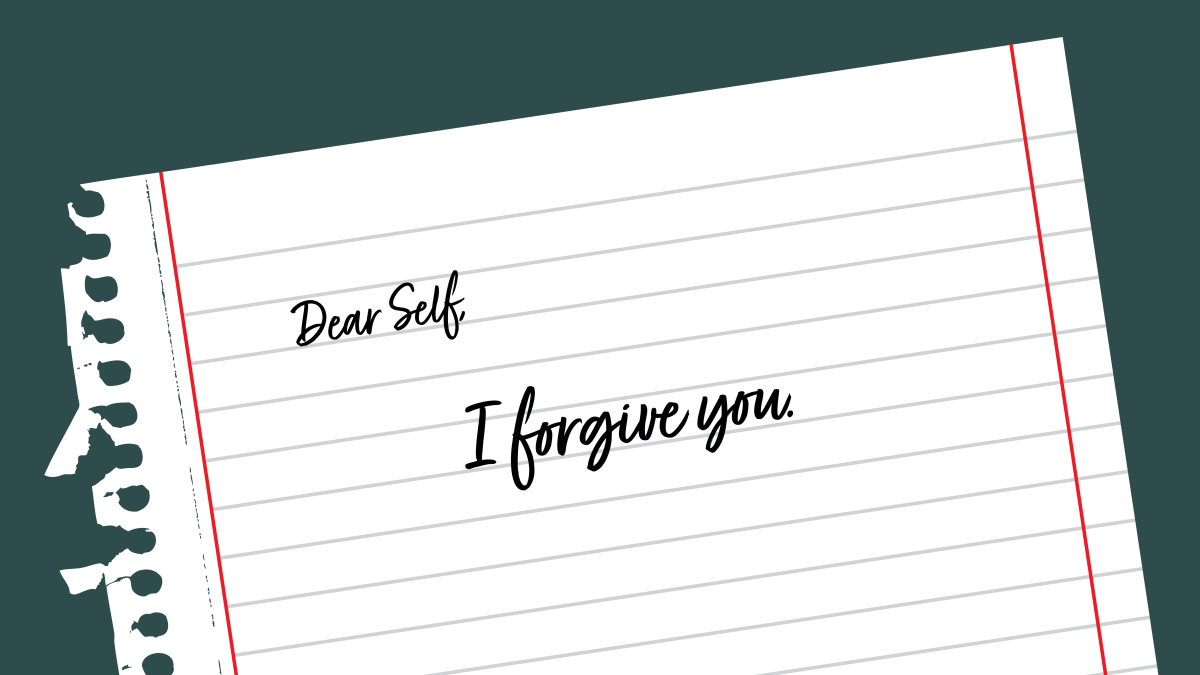We are taught that when we are unkind to others, we must apologize to them, and we usually apologize by saying “I’m sorry.”
Our apologies are almost always met with forgiveness because we are told to forgive those who are unkind to us. Forgiveness means to release feelings of resentment or vengeance toward a person or situation, and most of us have practiced forgiveness several times in our lives.
But, what about the person who is the unkindest to us? Do we forgive them?
I don’t think we do because the unkindest person to you…is likely you.
We rarely remember to forgive ourselves or merely apologize to ourselves. It’s time that we did.
According to Stanford Medicine, “research has shown that those who practice self-forgiveness have better mental and emotional well-being, more positive attitudes, and healthier relationships. A related outcome ties self-compassion with higher levels of success, productivity, focus and concentration.”
How awesome is it that the simple act of forgiveness holds the power to bring so much positivity into our lives? We are all human. We are all imperfect, making mistakes daily.
Forgiving yourself does not mean you forget about the past; it’s allowing your past to shape you rather than break you.
An article from leadershipiq.com said, “one of the strange aspects about self-forgiveness is that some people resist the idea of ‘forgiving yourself’ because they think that if they don’t harshly criticize themselves then they won’t have the motivation to get better and move forward.”
Consistent criticism crushes our self-esteem, which is a vital asset for almost every facet of life. People thrive when they are reaffirmed of their greatness and when they believe in themselves, not when they habitually remind themselves of shortcomings.
If we are unable to forgive ourselves for things we did in the past, how are we possibly supposed to move forward in life? How are we supposed to reap the greatness of life if we continue to feel shame from something we did on March 20, 2013?
We forgive because we love. It’s letting go of your suffering, releasing the emotions associated with the action. When I forgive others, I feel the emotional weight vanish and find this act to be better than holding a grudge.
I’ve only recently acknowledged the beauty that can come from forgiving yourself. My journey along this path wasn’t the answer to all my problems, but it did heal feelings of guilt and shame I held for years. It allowed me to stop hating parts of the world and parts of myself.
The uncomfortable nature of forgiving yourself is important, for it allows us to make more sense of our experiences and better navigate life.
True self-forgiveness analyzes times where you may have been the villain. It acknowledges the facts of a situation instead of reconstructing the narrative. By processing the pain, shame, regret, you name it, we can learn more about ourselves and how to better handle things in the future.
The act of forgiveness is a choice that only you can make, so what’s stopping you from forgiving yourself?
Give yourself permission to start this journey. Two simple words are the first step: I’m sorry.
Lauren Madden is a 22-year-old mass communication senior from Mandeville.
Opinion: We all have the power to forgive ourselves and we should use it
May 19, 2023
Self Forgive Graphic





